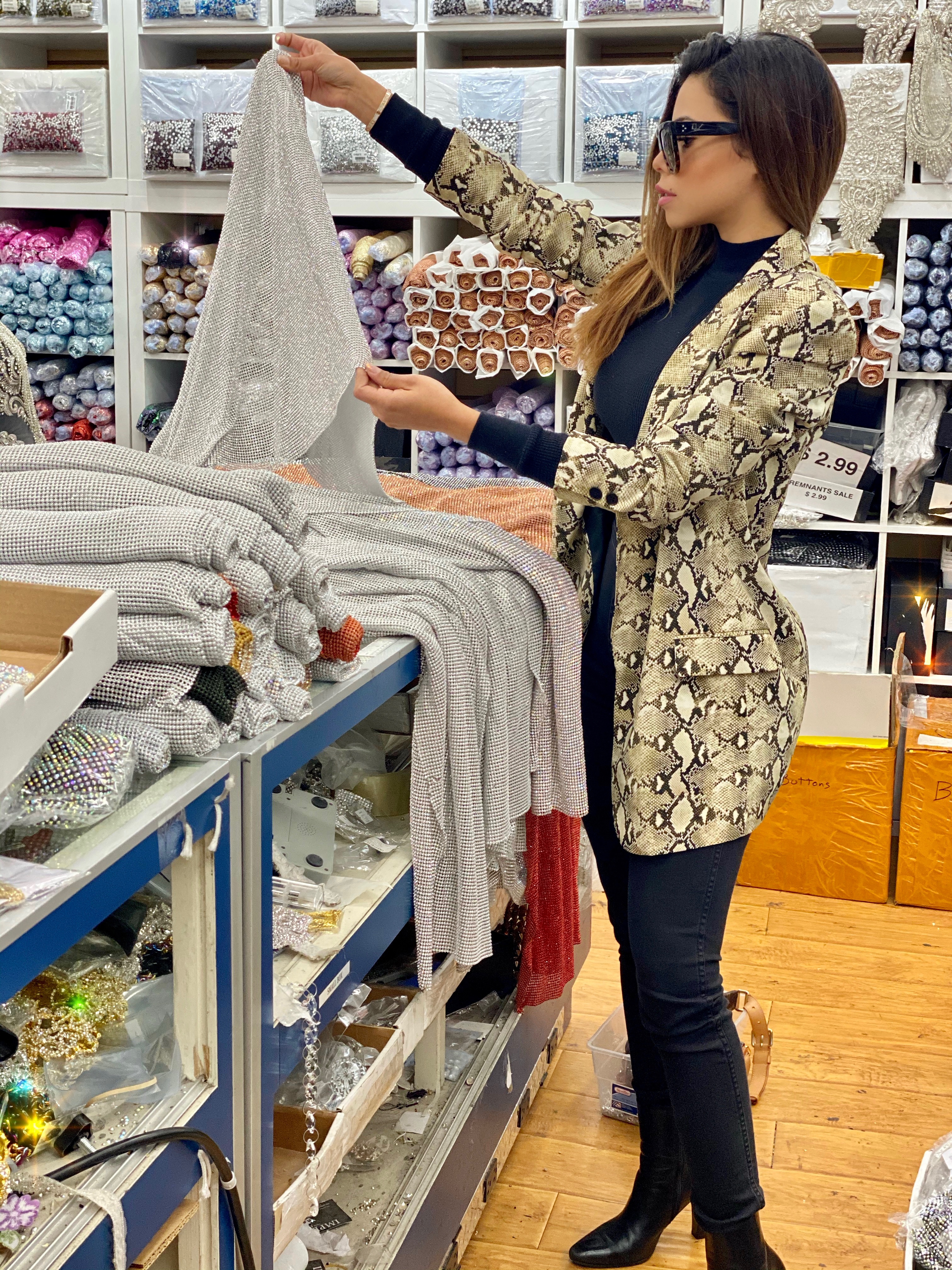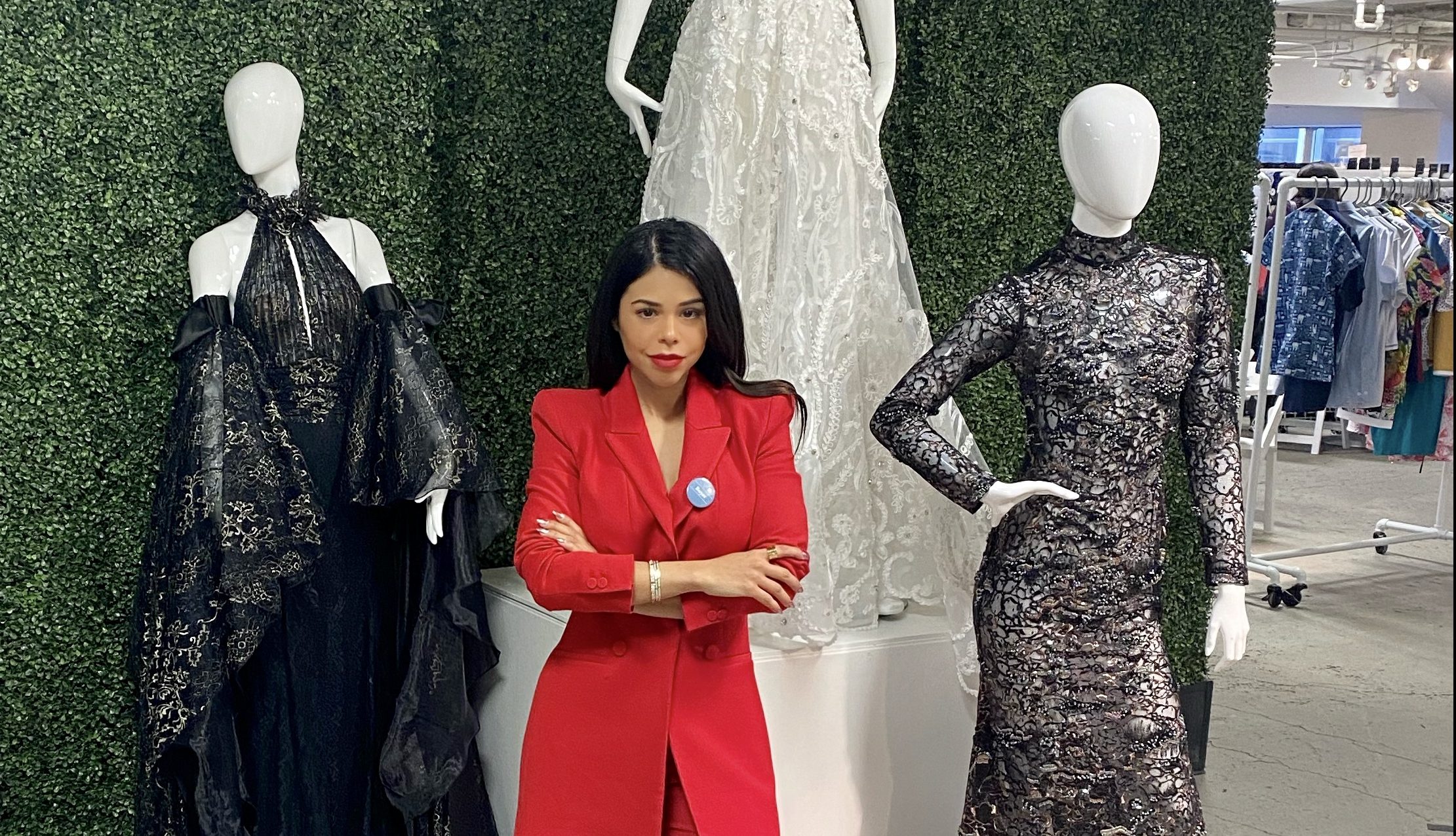How we feel on the inside is directly projected by how we behave on the outside. Our triumphs, challenges, attitude and personality is all reflected by the versions of ourselves that we put out into the world, which is why fashion and wellness are most certainly correlated. In 2020, making a fashion statement means so much more than striving to impress our peers and flaunt our lifestyles. Instead, we’re sending a message about who we are and the energy we exude. We’re showing our colleagues, friends, family and acquaintances who we are, what we have to say, and what we have to give. The garments on our back tell a story. They are our history, our present, and our future, and no one understands this truth better than Paola Estefania Linares.
A veteran celebrity stylist and designer with two labels to her name – Humble Hustler and Paola Estefania – the Venezuealan-American professional creates every piece in her collections with purpose and passion. There is meaning stitched into every fabric, a message embedded within every fiber, and intentionality is the backbone of everything Linares does. She recognizes the grave responsibility she has as a designer to inspire confidence, drive, and positivity, and produce garments that are worn with conviction. In an ever-changing world where we are constantly trying to gain a more thorough understanding about the importance of diversity, equality and sustainability, Paola’s labels are on the forefront of the fashion revolution. Her pieces are defined by an undying respect for multiple body types, cultures, genders, and social types, and her ultimate goal is to bridge the gap between fashion and mental health.
“Fashion studies and research have shown the impacts of the fashion industry in our behavior. Science now says that the clothes we wear most certainly affect our behavior, attitudes, personality, mood, confidence, and even the way we interact with other people,” Linares exclusively tells Thrive Global. “Fashion is a social force; this is why I believe we must strive to create in ethical forms of inclusion and diversity.”
But not only does Linares talk the talk – she also walks the walk. In an eye-opening interview, she breaks down the relationship between fashion and wellness, advocates for a more progressive future in the industry, and reveals how her companies are taking the necessary steps to be on the right side of history.
What made you want to go into the fashion industry?
Fashion has always been a very important part of my life. I always knew I wanted to be in the fashion industry as a child. I have always been inspired by different forms of art, and fashion is the best form of self-expression. Before I began my career in fashion, I studied interior design. As I continue to study the history of design and architecture, I began to realize how fashion has always influenced art movements all over the world.
How do you think the fashion industry will change post covid?
I believe more brands will put society and the environment at the forefront of the heart of the fashion industry. As manufacturers, we have the responsibility to do whatever we can to become more environmentally sustainable. This includes calls to make clothing last longer. To achieve this, our industry needs to rethink its business models. Furthermore, I see the future of fashion shifting to more conscious fundamental models which see brands and retailers needing to sell higher quality products instead of higher volumes of lower quality products. Using sustainable fibers, organic cottons, and recycle polyester, for example, can make remarkable differences. Take face masks for example; they have become the biggest fashion statement of the century. Brands all over the world have reinvented the way masks are made. There is a long way to go for this industry to reinvent itself for a more sustainable future, but reinvention is in fashion’s DNA.

How do you think the fashion industry has evolved over the last 5 years?
There have been incredible changes in the industry over the last couple of years. Fashion designers have been focusing more and more about humanity, diversity and sustainability. Gucci, for example, announced that they will no longer be taking part in the “fashion calendar” of shows. Alessandro Michele, the company’s creative director and one of my favorite designers, said they will be “abandoning the ritual of seasonality and shows” showing concerns about the environmental impact of the industry. This is a huge milestone for one of the most influential luxury brands of our time. Government regulations have improved calling for better treatment of workers in the industry, and enable a fair transition for workers and working conditions as global supply chains have changed.
Do you think there is a connection between fashion and mental health?
Yes, certainly. Fashion is the best form of self-expression. Dressing how you want to feel is a way to embody the state of mind you seek. Fashion can also influence and shape other people’s perception of you in a positive or negative way. Fashion has the power to influence how we are treated, which in turn can impact our mental well-being.
How do you think fashion can potentially improve one’s confidence and how he/she sees themselves?
There’s a famous saying that I’m sure most of you have heard before: “Look good, feel good.” We consider some of the clothes we wear to be powerful, some to be fun, and so on. We even evaluate people whom we have just met based on their clothes and the occasion. It would seem that we also evaluate ourselves and our roles based on what we are wearing at a particular time; because of the way they make us feel. This means that the experience of wearing something subtly affects our attitudes and our choice of behavior. You can wear something you have never worn before, and all of a sudden feel like a completely different person.
Do you think fashion designers and the industry as a whole put enough emphasis on the importance of mental health?
Yes! I love the new direction the fashion industry is taking, there is a lot of more diversity and inclusivity in the fashion market than ever before. Traditional stereotypes have shifted and transformed allowing other cultures, races, genders, and body types to be embraced and represented in this industry. What we consider beautiful can be easily manipulated by the media and fashion marketing campaigns. The fashion industry can truly have a profound impact in our society and the way we think. Therefore, it is important that everyone feels well represented by the fashion brands they wear.
How do you think the fashion industry impacts someone’s overall mental health and wellness?
Fashion studies and research have shown the impacts of the fashion industry in our behavior. Science now says that the clothes we wear most certainly affect our behavior, attitudes, personality, mood, confidence, and even the way we interact with other people. Fashion is a social force; this is why I believe we must strive to create in ethical forms of inclusion and diversity.
How do you prioritize your mental health while also putting a significant amount of time and effort into your career?
I’m very disciplined with my schedule, I try to balance the time I spend at home with my family and my work schedule as much as possible. I love working on projects that inspire me, and sharing the working progress with my clients and my followers on social media. Having real connections and human interactions during the process of design is key for me. I’m constantly focusing on how to improve my personal signature, style, and identity.
What projects are you currently working on?
I’m currently developing a new brand and a mommy and me swimwear collection. I’m the mother of a 2-year-old baby girl, and being able to work on a project inspired by her is a dream come true.
What is something people may not know about you?
I’m a small town girl, I grew up in the city of Coro state of Falcon, Venezuela. I am very proud of my roots; I always try to do my best to give back to my community and represent my country the best way I can.


